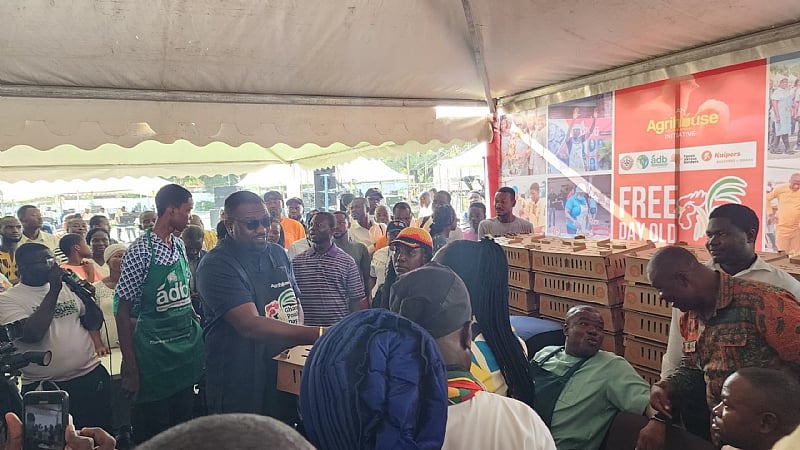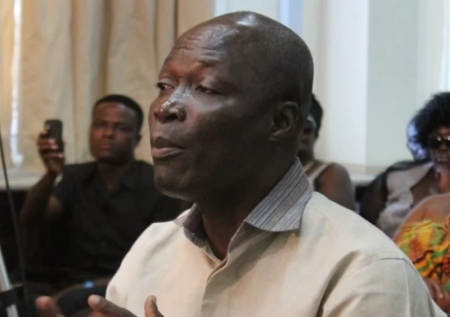Ghana is embarking on an ambitious journey towards poultry self-sufficiency, aiming to drastically reduce its reliance on imported chicken and eggs. The government’s newly unveiled “Nkoko Nkit-Inkiti” project forms the cornerstone of this national strategy, designed to revitalize the local poultry value chain from hatcheries to distribution networks. This initiative reflects a growing recognition of the poultry sector’s potential to not only enhance food security but also to generate substantial employment opportunities and stimulate economic growth, particularly in rural areas. The project’s core strategy involves empowering 50,000 anchor farmers with 80,000 day-old chicks each, a move anticipated to positively impact over 55,000 households nationwide. This targeted intervention aims to create a ripple effect, boosting local production and gradually displacing imported poultry products from the Ghanaian market.
The “Nkoko Nkit-Inkiti” project is not merely a standalone initiative; it aligns with the broader “Feed Ghana” program, a comprehensive agricultural transformation agenda championed by the Ministry of Food and Agriculture. This larger framework prioritizes enhancing food production and processing capacities across all regions of the country. By integrating poultry development within this broader strategy, the government aims to create a synergistic effect, boosting agricultural output and strengthening the overall food system. The emphasis on poultry and livestock within the “Feed Ghana” program further highlights the government’s commitment to leveraging these sectors for youth employment, rural development, and import substitution. The vision is to create a robust and sustainable agricultural sector that contributes significantly to national economic growth.
The overarching goal of “Nkoko Nkit-Inkiti” is to phase out poultry imports entirely in the near future. This ambitious target underscores the government’s determination to foster a thriving domestic poultry industry. By shifting from reliance on imports to local production, the government aims to retain the billions of cedis currently spent on foreign poultry products within the Ghanaian economy. This reinvestment in the local sector is expected to create a virtuous cycle, generating jobs, stimulating rural economies, and strengthening Ghana’s overall food security. The initiative signals a shift towards prioritizing domestic production and building a resilient and sustainable agricultural sector capable of meeting the nation’s poultry needs.
The “Nkoko Nkit-Inkiti” project has garnered strong support from various stakeholders, including members of parliament and agricultural organizations. They emphasize the critical importance of a dedicated national focus on poultry as a strategic element within the government’s broader agricultural goals. This shared vision underscores the widespread recognition of the poultry sector’s potential to drive economic transformation and contribute to long-term national sustainability. By prioritizing poultry development, Ghana aims to not only feed its population but also create employment opportunities for its youth and foster robust rural economies.
The call for increased collaboration between the government, private sector, development partners, and agricultural institutions is paramount for strengthening the poultry value chain. This collaborative approach seeks to leverage the expertise and resources of all stakeholders to ensure the project’s success. The emphasis on accessible financing models for small-scale poultry farmers is crucial, recognizing their role as the backbone of the industry. Empowering these farmers through access to capital and resources is essential for boosting production and achieving the goals of “Nkoko Nkit-Inkiti.” This collaborative and inclusive approach underscores the project’s commitment to broad-based agricultural development.
The launch of the “Nkoko Nkit-Inkiti” project has been met with optimism, with many viewing it as a potential turning point for Ghana’s agricultural future. The distribution of 5,000 day-old chicks to senior high schools and farmers during the Ghana Poultry Day event serves as a tangible demonstration of the project’s commitment to grassroots empowerment. The showcasing of success stories and the platform for knowledge sharing further contribute to creating a positive momentum for the initiative. While enthusiasm is high, the call for strict monitoring mechanisms to ensure transparency, accountability, and efficiency in the program’s rollout highlights the importance of good governance and effective implementation in realizing the project’s ambitious goals. This vigilance is essential for maximizing the impact of “Nkoko Nkit-Inkiti” and ensuring its long-term success.














